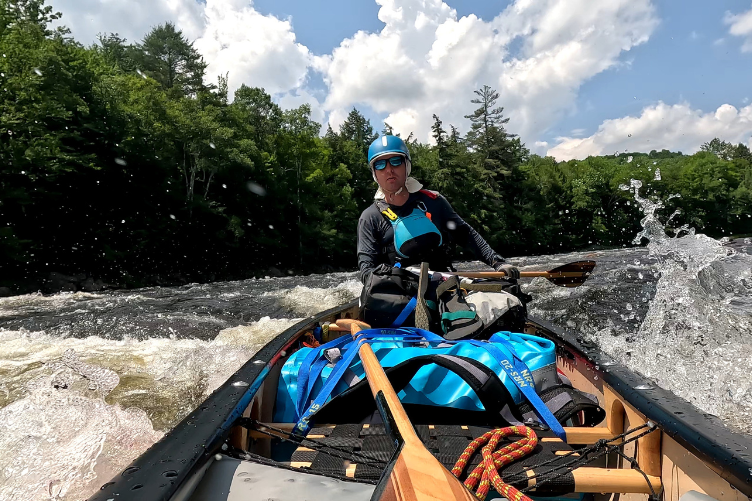 Tuesday, January 20, 2026John Henkelman is bringing lessons from the water into his research and planning projects closer to homeJohn Henkelman, who canoed the length of the Hudson River, is bringing lessons from the water during into his research and planning projects closer to home.
Tuesday, January 20, 2026John Henkelman is bringing lessons from the water into his research and planning projects closer to homeJohn Henkelman, who canoed the length of the Hudson River, is bringing lessons from the water during into his research and planning projects closer to home. Tuesday, December 16, 2025COLSA professor studies 'the hidden life below our feet' in the soilSerita Frey, professor in the UNH Department of Natural Resources and the Environment, was selected as the winner of the 2025 Excellence in Research Award given out during the annual Faculty Excellence celebration this fall.
Tuesday, December 16, 2025COLSA professor studies 'the hidden life below our feet' in the soilSerita Frey, professor in the UNH Department of Natural Resources and the Environment, was selected as the winner of the 2025 Excellence in Research Award given out during the annual Faculty Excellence celebration this fall. Friday, January 03, 2025New UNH research highlights the need for balanced research efforts to protect underrepresented species and guide future conservationUNH research reveals gaps in wildlife studies, calling for a balanced focus on smaller species to guide conservation efforts and prevent biodiversity loss.
Friday, January 03, 2025New UNH research highlights the need for balanced research efforts to protect underrepresented species and guide future conservationUNH research reveals gaps in wildlife studies, calling for a balanced focus on smaller species to guide conservation efforts and prevent biodiversity loss.
Natural Resources & Earth Systems Science Ph.D.
-
Academics
Show Academics submenu
- Explore Degree Programs
- Areas of Study Show Areas of Study submenu
-
Colleges & Schools
Show Colleges & Schools submenu
- Carsey School of Public Policy
- College of Engineering and Physical Sciences
- College of Health and Human Services
- Colege of Liberal Arts
- College of Life Sciences and Agriculture Show College of Life Sciences and Agriculture submenu
- College of Professional Studies
- Franklin Pierce School of Law
- School of Marine Science and Ocean Engineering
- Online
- Peter T. Paul College of Business and Economics
- Experiential Learning Show Experiential Learning submenu
- Honors Opportunities
- Outcomes & Value
- Admissions & Aid Show Admissions & Aid submenu
- Life at UNH Show Life at UNH submenu
- Research Show Research submenu
- About UNH Show About UNH submenu